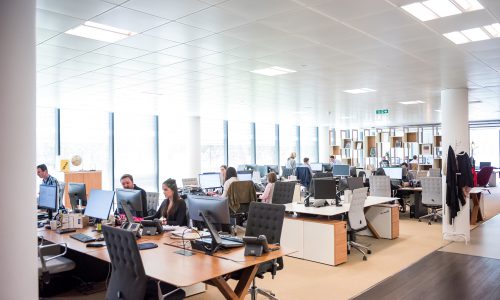It’s been a popular topic of conversation since, well, the start of the pandemic. While many thought offices would only close temporarily for a few weeks, some have shuttered for good.
For many, fully remote workplaces are here to stay.
In a recent ForceBrands LinkedIn poll, we asked our audience if their company was headed back to the office. Here’s what you had to say.
The majority of the 1,300+ respondents (41 percent) said that they were already back in the office in some capacity, whether it’s full-time or hybrid. Slightly less than one-third of respondents (30 percent) said that they’re working fully remote. And some employees — 21 percent — said there’s a plan in place to return to the office. Just 8 percent of poll takers responded with “Other.”
We looked to the comments section for additional insights.
“We’re moving to a hybrid [workplace] — one day a week in the office starting May 1,” said one respondent who works as a supply chain innovator.
Flexibility remains a common theme. And for many, it’s the ultimate workplace luxury. “[I’m] fully remote, and taking steps to design my career growth in such a way that I can work from anywhere forever,” another respondent commented.
While there appears to be an end in sight with the pandemic as mask mandates are lifting and companies are indeed planning a more permanent return to the office, the future of the workplace still remains to be seen. It’s murky at best.
There are many unknowns as we look ahead to the post-pandemic work life. What will happen to business travel, for example? American Express — one of the few financial firms largely in favor of remote work — expects the need to travel to the office periodically or to visit with clients to increase. What about the daily commute? The biggest commuter railroads in the U.S. are making plans for potentially permanent shifts in daily ridership, which could in some cases threaten their long-term service, the Wall Street Journal reports.
All this to say that if there’s one thing that remains true in the post-pandemic workplace, it’s that employees are in control. The job market is fiercely candidate-driven, putting job seekers in the driver’s seat. Employees value workplace flexibility more than ever. So whether that means working part-time in the office or working remotely full-time, it’s up to the employers to deliver if they want to attract and retain top talent.






